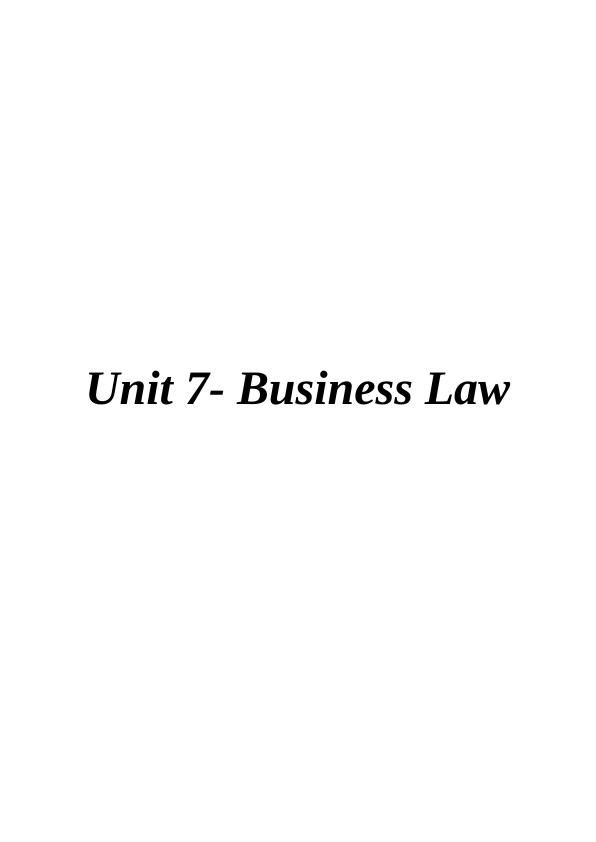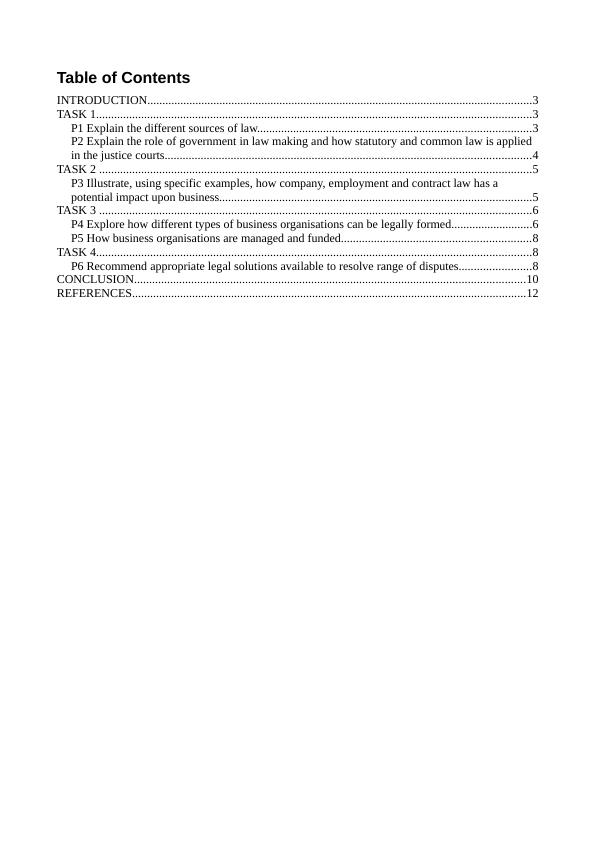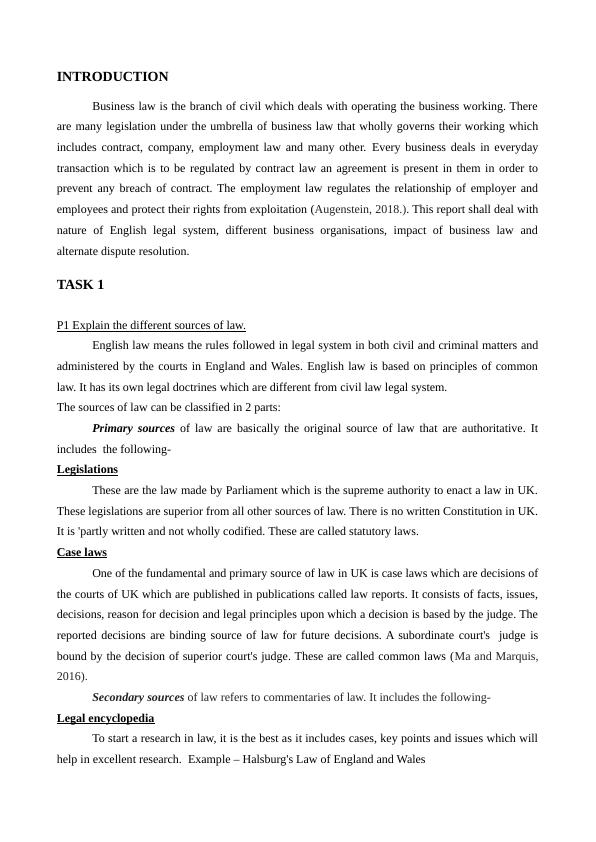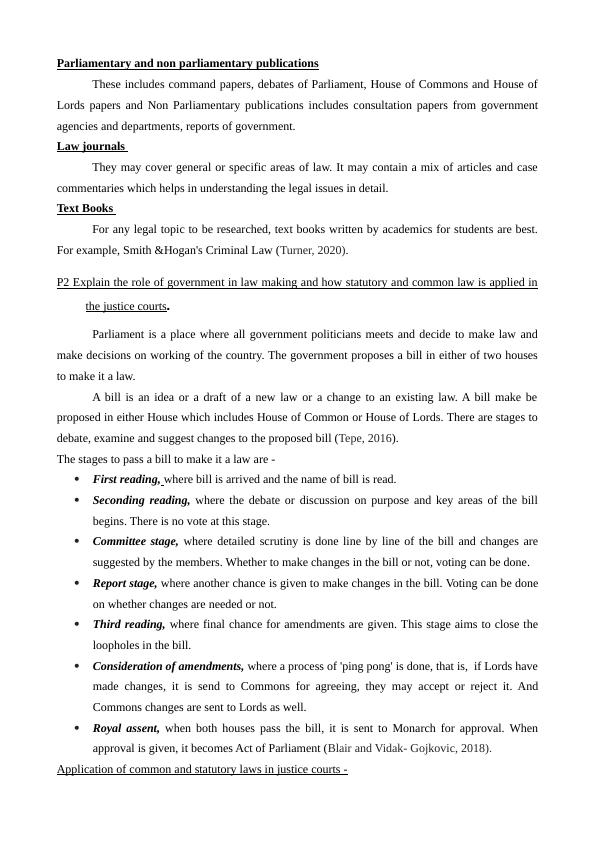Unit 7- Business Law
12 Pages4385 Words60 Views
Added on 2022-12-23
About This Document
This study material provides an in-depth understanding of business law, including the different sources of law and their impact on business. It explains the role of government in law making and how statutory and common law is applied in justice courts. It also explores how company, employment, and contract law can potentially impact businesses. Additionally, it discusses how different types of business organizations can be legally formed and how business organizations are managed and funded.
Unit 7- Business Law
Added on 2022-12-23
ShareRelated Documents
End of preview
Want to access all the pages? Upload your documents or become a member.
Impact of Company, Employment, and Contract Law on Business
|9
|2164
|353
Business Law: Sources, Role of Government, Impact on Business, Types of Organizations, Dispute Resolution
|10
|3008
|22
Civil Law and Criminal Law : Assignment
|15
|5247
|61
Business Law: Sources, Government Role, Impacts, and Solutions
|10
|2877
|48
Business Law Aspects - Assignment
|13
|3858
|217
Law Sources, Law Making Process, Business Legislations, Business Organizations, Legal Solutions for Disputes
|13
|3819
|448




